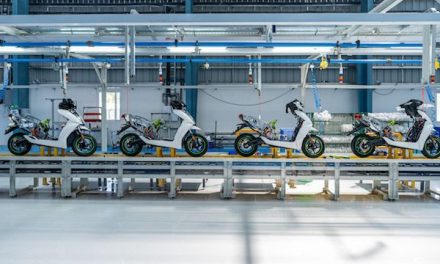EV charging infrastructure can become a revenue source for commercial fleet operators and truck dealerships thanks to a new incentive programme
The Association of Fleet Professionals (AFP) is currently exploring ways that its members such as DPD and Royal Mail can share the EV charging infrastructure at their depots. Reciprocal arrangements where operators can use each other’s charge points can help improve productivity, extend EV range, and reduce costs
However, van and truck operators can also easily monetise their chargers, according to energy storage experts, Connected Energy.
The new Demand Flexibility Service (DFS) from the National Grid incentivises businesses to reduce their demand on the grid during peak periods. This means that companies can get paid for using less energy. The aim is to help the electricity network to flatten out spikes and significantly reduces the risk of blackouts.
EV chargers add significant load to the grid – and this will grow as more high-capacity chargers are deployed to service trucks and buses, or to rapid charge cars and vans. However, by pairing these chargers with a battery energy storage system (BESS), fleets can still charge their EVs while also reducing the amount of grid energy they consume during peak periods.
“This could be a real game-changer for fleets,” said Nigel Dent, head of sales at leading BESS provider Connected Energy. “The modelling we’ve already seen for truck depots and HGV service centres indicates that companies could earn up to £15,000 a year by using a BESS to participate in DFS and other schemes.”
DFS runs each winter from November to March, with National Grid designating at least 12 periods of time known as ‘events’, when it will ask participants to stop drawing energy from the network. These will occur at times when demand is exceptionally high, usually between 4pm – 7pm.
Each event could last up to four hours, but a business doesn’t have to participate for the full duration and the minimum length is 30 minutes per event. They get paid for the length of time they take part and the amount by which their energy consumption is reduced. National Grid has quoted this as £3,000 per megawatt-hour (MWH).
“Commercial fleet operators and truck dealerships are going to have to install high-capacity charging stations to support the transition to electric vans and HGVS,” added Nigel. “By pairing them with a BESS and taking part in these flexibility initiatives, they can transform this from a necessary expense into a return on investment.”
Connected Energy designs and produces E-STOR, which uses batteries from end-of-life EVs and gives them a second life in energy storage. These 300kW systems are used across Europe to support EV charging, generate revenue, and optimise on-site renewables.
“A fleet depot or truck dealership is an ideal participant in reducing load as they’re more likely to be charging at set times, often overnight,” said Nigel. “Trucks need high-capacity chargers, typically 150kW or 350kW. By using a BESS you offset your energy use without actually having to turn off the charger. You can continue to charge the vehicle for that hour without drawing from the grid, meaning you can claim under DFS without impacting your operations.”
Connected Energy has recently released a new whitepaper on the benefits of battery energy storage on EV high powered charging sites. To download it, visit: https://landing.connected-energy.co.uk/break-power-barriers-with-battery-energy-storage




